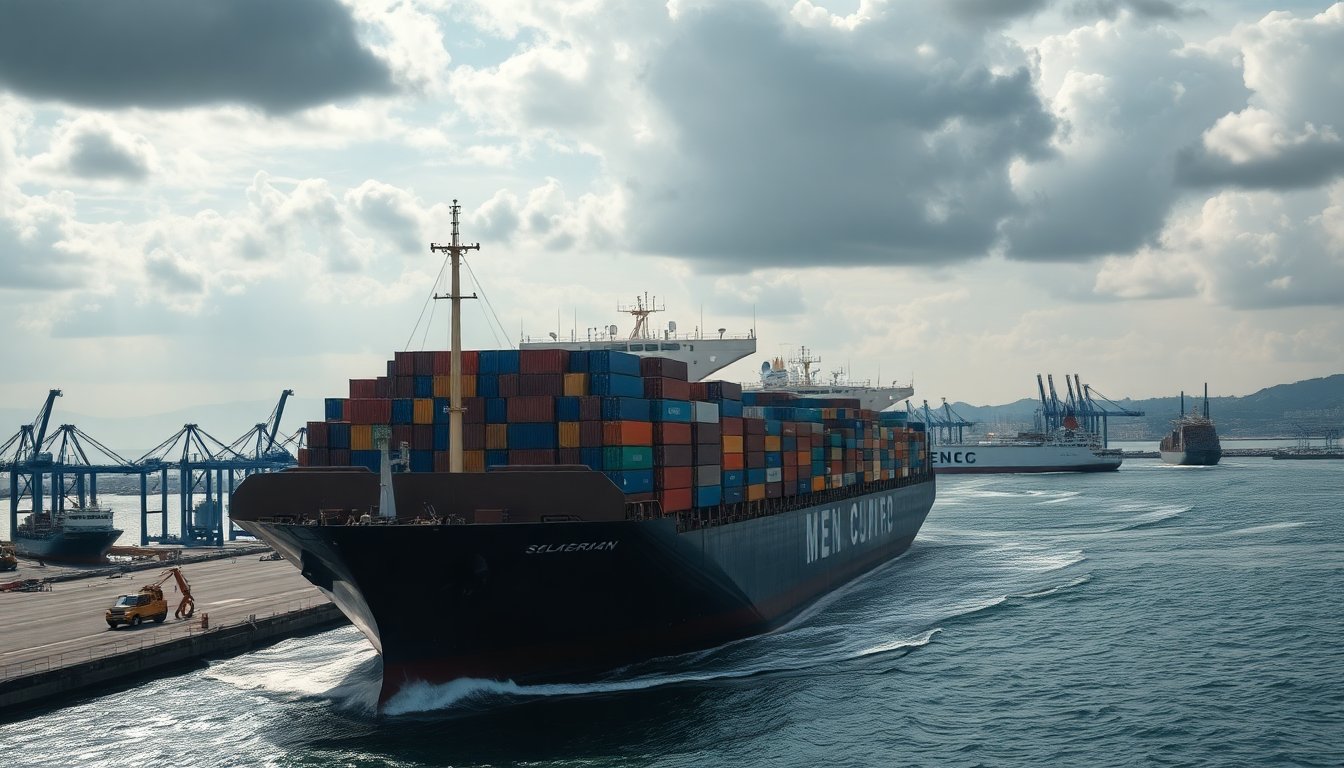Table of Contents
The International Maritime Organization (IMO) has postponed a significant vote on reducing emissions from the shipping sector. This decision follows a warning from United States President Donald Trump, who threatened sanctions against countries supporting the proposed regulations.
Initially set for approval, the Net Zero Framework (NZF) aimed to align with global climate change initiatives. However, the delay in its adoption until next year reflects the complex political landscape that influences international environmental policies.
Political backdrop to the delay
In a vote held on Friday, IMO members opted to defer the NZF approval by a narrow margin. This decision has been viewed as a setback in the international effort to address the shipping industry’s impact on climate change, particularly following the framework’s initial approval in April.
On the eve of the meeting, Trump expressed his opposition to the proposed global carbon tax for shipping via his social media platform, Truth Social. He urged nations to reject the initiative, framing it as economically harmful. His message resonated with several member countries, contributing to the postponement.
Impact of the United States’ stance
The United States’ influence in international matters is significant. Following Trump’s remarks, IMO delegates shifted their focus from advancing the carbon tax proposal to a resolution delaying discussions on the framework, which passed narrowly with 57 votes against 49.
The IMO, comprising 176 member states, plays a vital role in establishing guidelines for maritime safety and environmental protection. The postponement of the NZF marks a crucial moment in the ongoing tension between environmental goals and national economic interests, particularly in light of recent U.S. policies favoring fossil fuel development.
Reactions from the global community
Reactions to the postponement have varied, with many expressing disappointment. A spokesperson for United Nations Secretary-General Antonio Guterres described the delay as a missed opportunity, highlighting the necessity for unified action to achieve net-zero emissions in shipping.
The International Chamber of Shipping, representing over 80 percent of the global fleet, echoed this sentiment. Secretary-General Thomas Kazakos noted that uncertainty regarding emissions regulations hinders the industry’s capacity to invest in necessary decarbonization efforts.
Urgency of climate action
Countries such as China, the European Union, and Brazil previously expressed support for the framework, stressing the urgency of addressing shipping emissions. Conversely, nations like Russia and Saudi Arabia opposed the measures, revealing a divide among member states about the future of maritime regulations.
Vanuatu’s Minister for Climate Change, Ralph Regenvanu, criticized the delay as unacceptable given the escalating impacts of climate change. He reaffirmed Vanuatu’s commitment to international law and the pursuit of environmental justice, underscoring the determination of smaller nations to advocate for global sustainability.
Future implications for the shipping industry
Initially set for approval, the Net Zero Framework (NZF) aimed to align with global climate change initiatives. However, the delay in its adoption until next year reflects the complex political landscape that influences international environmental policies.0
Initially set for approval, the Net Zero Framework (NZF) aimed to align with global climate change initiatives. However, the delay in its adoption until next year reflects the complex political landscape that influences international environmental policies.1


